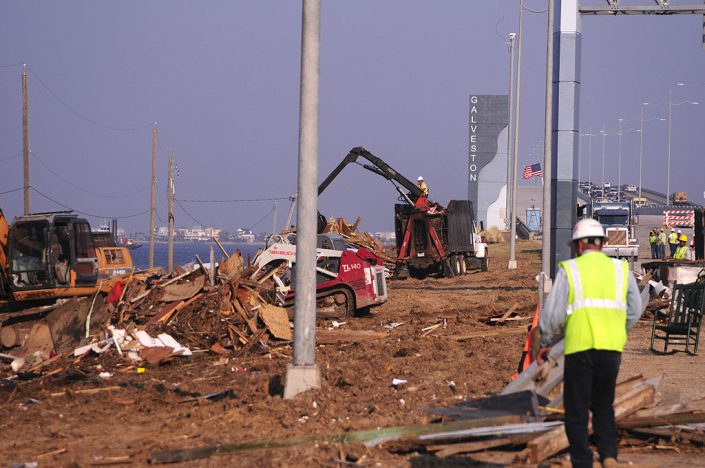Labor trafficking: Study seeks ways to disrupt exploitation after disasters

A research team from Texas A&M University and The University of Texas at Austin is taking a deeper look into Houston after Hurricane Harvey to identify new ways to combat construction-related labor exploitation and trafficking.
Eleftherios Iakovou, director of manufacturing and logistics innovation initiatives at the Texas A&M Engineering Experiment Station and professor in the Department of Engineering Technology and Industrial Distribution at Texas A&M, will serve as a co-leader during the study. The team also includes Yanling Chang, assistant professor and Corrie and Jim Furber ’64 Faculty Fellow in the department.
Labor trafficking is a form of human trafficking that occurs when a person is forced or coerced into a job with little or no compensation. The most common victims are refugees, impoverished people and immigrant workers in the construction, manufacturing and mining industries.
“A lack of visa portability, withholding of passports and high recruitment fees are some of the risks contributing to the increased vulnerability of construction workers and the emergence of illicit supply chains in the sector,” Iakovou said. “The industry is further characterized by informal, part-time and temporary working relationships.”
Because these laborers are lacking financial security, they can be easily intimidated and are more prone to exploitation and accepting dangerous working conditions. The lingering chaos and need to rebuild after a natural disaster opens the door to the complicated illicit supply chains that lead to the trafficking of temporary workers.
Using the post-Harvey Houston construction industry as a foundation of the study, the researchers can better understand how trafficking networks function in and are affected by a post-catastrophe environment.
With information gathered while interviewing post-Harvey cleanup laborers, the researchers will model human trafficking and exploitation and identify interventions that can be used to cut down on the behaviors that lead to construction-related trafficking.
The project is funded by the National Science Foundation’s Early-concept Grant for Exploratory Research program (NSF EAGER).
Matt Kammer-Kerwick, a research scientist at the IC² Institute, will lead the University of Texas team.

